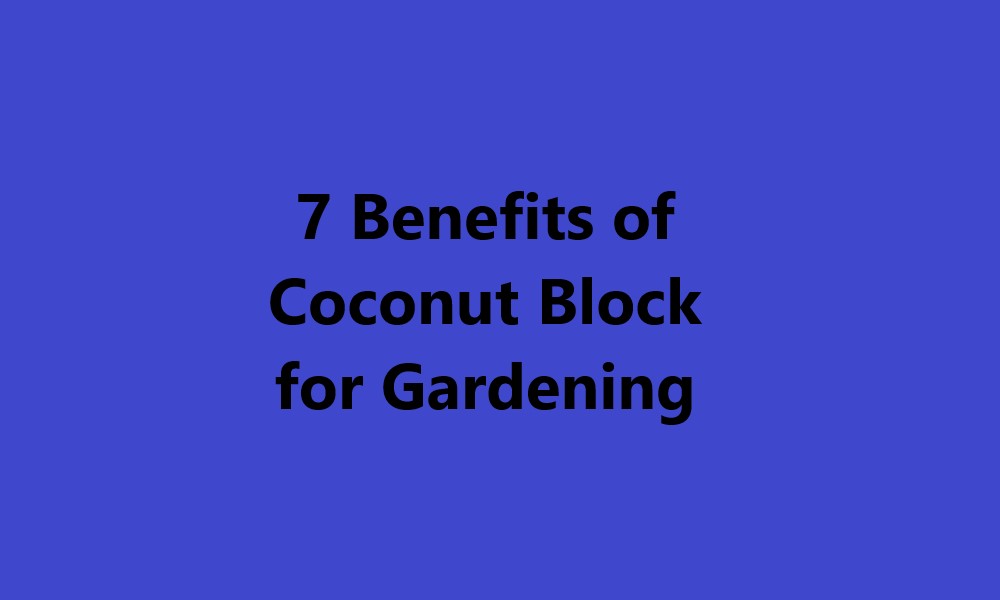Looking for benefits of coconut block for gardening? Check this complete guide.
What are Coconut Blocks?
When it comes to using Coconut, most people think of the flesh of the coconut which is used to obtain Coconut Milk and cream but interestingly the undiscovered part of the coconut which was once discarded as a waste material has now become an amazing medium for growing plants and gardening and that is the coconut coir.
The coconut blocks are made up of ground coir and compressed into the shape of a block for ease of shipping and transportation. The coconut blocks have many uses in Gardening which would later be discussed in the blog.
How are Coconut Blocks made?
To make coconut blocks, the husk from the coconut is removed and soaked in water to soften the fiber present in it. Once the fiber is loose and soft, it is separated from water and allowed to dry up for a year.
After the drying process is complete, the fiber is processed to produce coconut blocks. To shape the blocks the fiber of coconut is finely chopped and compressed into the shape of a block.
Prerequisite before using Coconut Blocks for Gardening:
As discussed above, coconut blocks are obtained after drying the fiber of the coconut. Therefore, it is important to rehydrate the blocks before adding them to the soil or using them for gardening. To do so, all you need to do is soak the coconut blocks in a sufficient amount of water to obtain a soft texture like that of soil.
Benefits of Coconut Block for Gardening:
1. Resistant to Pests and Diseases
One major concern for gardening is protecting the plant from molds and pests, for this reason, Coconut blocks are a great option as they have the ability to repel molds, insects, and diseases. This in turn helps in better growth and nourishment of plants.
2. Sustainable and biodegradable
Coconuts are extensively available therefore coconut blocks are considered a sustainable growing medium, they can be reused multiple times before discarding which makes it a budget-friendly option for gardening. Additionally, since coconut blocks are a natural growing medium therefore, their decomposition process is slow and they are biodegradable which means they are eco eco-friendly and do not harm the environment or plants in any way.
3. Worm Cultivation
The properties of coconut blocks such as water retention, balanced pH, good water drainage, and nutrient content make it perfect for worm cultivation. Farmers can use coconut blocks for composting worm castings and in order to achieve even better results organic waste can be added to it to optimize the production.
4. Organic Gardening
Coconut blocks are also used for container and organic gardening, but in order to obtain maximum efficiency it is often mixed with other mediums such as perlite and vermicompost. Because coconut blocks have water retention properties and too much water retention can cause damage to the roots of the plants therefore, vermicompost is added to control the moisture level and provide the necessary nourishment to the plant.
By having a look at the amazing benefits of coconut blocks it is fair enough to say it is an amazing alternative to the traditional peat moss and can be used in many ways for gardening and maximizing agriculture. But it is very important to use it the right way to enjoy its benefits. Also, a thing to keep in mind is, that if the coconut blocks are rehydrated in salt water, then you must know that it retains salt and if salt is present, it can kill your plants.
Contact Earth Scape to buy coco peat.
Editorial staff’s at Think Senior are experts in various niches.

